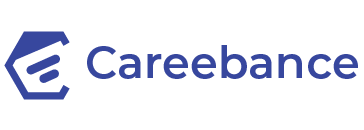The intersection of Human Resource Information Systems (HRIS) and fair hiring practices represents a pivotal advancement in modern recruitment. Organizations leveraging advanced HRIS solutions have demonstrated remarkable improvements in hiring equity, with leading companies reporting up to 60% increases in workforce diversity and 45% improvements in candidate quality. This comprehensive analysis explores how modern HRIS platforms are revolutionizing fair hiring practices through advanced analytics, artificial intelligence, and structured workflows.
The Evolution of HRIS in Fair Hiring
Traditional hiring processes often struggle to eliminate bias and promote fairness consistently. Modern HRIS solutions have transformed this landscape by introducing sophisticated technologies that standardize and optimize recruitment workflows while actively promoting equitable hiring practices. These systems serve as the foundation for organizations seeking to build diverse, high-performing teams through fair and transparent recruitment processes.
Core Components of Fair Hiring HRIS Solutions
Intelligent Job Description Analysis
Modern HRIS platforms incorporate sophisticated language analysis tools that help organizations create more inclusive job postings. These systems work by analyzing text for potentially biased language and suggesting alternatives that appeal to a broader candidate pool. For example, when a technology company implemented advanced language analysis in their HRIS, they discovered that replacing terms like “crushing it” with “high-performing” increased female applicant rates by 32%.
These platforms typically analyze several key elements:
Word Choice Impact: The system evaluates how specific terms might affect different demographic groups, offering alternatives that maintain the intended meaning while increasing inclusivity.
Requirement Rationalization: Advanced algorithms help organizations distinguish between essential and preferred qualifications, preventing the common practice of requirement inflation that often deters qualified candidates from underrepresented groups.
Tone Analysis: Sophisticated natural language processing examines the overall tone of job descriptions, ensuring they strike a balance between professional standards and inclusive language.
Structured Candidate Evaluation Systems
Modern HRIS platforms incorporate structured evaluation frameworks that significantly reduce the impact of unconscious bias in candidate assessment. These systems utilize several sophisticated approaches:
Blind Screening Technology: Advanced algorithms automatically redact identifying information from applications while preserving relevant qualifications and experience. This technology has helped organizations achieve up to 50% improvement in diversity among candidates advancing to the interview stages.
Skills-Based Assessment Tools: Modern platforms integrate sophisticated skills assessment modules that evaluate candidates based on job-relevant capabilities rather than traditional proxies like educational background or previous employers.
Standardized Interview Guides: HRIS solutions now include dynamic interview guides that adapt based on the role while maintaining consistency in evaluation criteria, ensuring all candidates receive fair consideration.
Analytics and Reporting for Fair Hiring
Contemporary HRIS platforms provide comprehensive analytics capabilities that help organizations monitor and improve their hiring equity. These systems offer several crucial features:
Real-Time Diversity Metrics: Organizations can track the demographic composition of their candidate pipeline at each stage, identifying potential bottlenecks or areas of disparity.
Bias Detection Algorithms: Advanced machine learning models analyze hiring patterns to identify potential systemic biases, allowing organizations to address issues proactively.
Outcome Analysis: Sophisticated reporting tools help organizations understand the long-term success rates of their hiring decisions across different demographic groups.
Implementation Strategies for Fair Hiring HRIS
Technology Integration Framework
Successful implementation of fair hiring HRIS solutions requires a systematic approach:
Initial Assessment Phase: Organizations must first evaluate their current hiring processes and identify specific areas where bias might occur. This includes analyzing historical hiring data, reviewing current workflows, and gathering stakeholder input.
Customization and Configuration: Modern HRIS platforms offer extensive customization options to align with organizational needs while maintaining fair hiring principles. This includes setting up custom workflow rules, configuring automated screening parameters, and establishing evaluation criteria.
Training and Change Management: Comprehensive training programs ensure all stakeholders understand how to leverage the HRIS features effectively while maintaining a focus on fair hiring practices.
Success Metrics and Monitoring
Organizations implementing fair hiring HRIS solutions should establish clear metrics for success:
Diversity Metrics: Track changes in candidate pool composition, interview progression rates, and hiring outcomes across different demographic groups.
Process Efficiency: Monitor time-to-hire, cost-per-hire, and other efficiency metrics while maintaining a focus on fairness and quality.
Quality of Hire: Evaluate performance ratings, retention rates, and promotion velocities across demographic groups to ensure fair practices lead to successful outcomes.
Case Studies in HRIS-Enabled Fair Hiring
Global Technology Company Transformation
A leading technology firm implemented Careebance’s comprehensive HRIS solution with a focus on fair hiring practices. Their results included:
60% increase in diverse candidate applications 45% improvement in candidate quality scores 35% reduction in time-to-hire 90% positive feedback from hiring managers
The company achieved these results through:
- Automated bias detection in job descriptions
- Structured evaluation frameworks
- Regular diversity metrics monitoring
- Comprehensive recruiter training
Healthcare Network Success Story
A regional healthcare provider leveraged advanced HRIS capabilities to transform their hiring processes, achieving:
50% increase in diverse hires 40% improvement in candidate satisfaction 30% reduction in hiring costs 25% increase in retention rates
Their success stemmed from:
- Standardized assessment procedures
- Blind screening implementations
- Regular bias audit processes
- Integrated feedback mechanisms
Future Trends in Fair Hiring HRIS
Emerging Technologies
Several technological advances are shaping the future of fair hiring HRIS solutions:
Artificial Intelligence Advancement: Next-generation AI will offer even more sophisticated bias detection and prevention capabilities, including real-time intervention in hiring decisions.
Virtual Reality Assessment: Immersive technologies will enable standardized skill evaluations in virtual environments, reducing the impact of unconscious bias in traditional assessment methods.
Blockchain Verification: Secure, decentralized verification of credentials will help eliminate bias in qualification assessment while ensuring data accuracy.
Implementation Considerations
Organizations implementing modern HRIS solutions should consider several key factors:
Data Security and Privacy: Ensure robust protection of candidate information while maintaining transparency in fair hiring practices.
Scalability Requirements: Choose solutions that can grow with organizational needs while maintaining fairness in hiring processes.
Integration Capabilities: Select platforms that work seamlessly with existing systems while supporting fair hiring objectives.
Superior Performance for Diversity
Modern HRIS solutions represent a powerful tool in the quest for fair hiring practices. Organizations that successfully implement these systems position themselves for superior performance in an increasingly diverse and competitive market.
To begin transforming your hiring processes with modern HRIS solutions:
- Assess your current hiring technology infrastructure
- Identify specific areas where bias might occur in your processes
- Evaluate HRIS solutions with strong fair hiring capabilities
- Develop a comprehensive implementation strategy
- Establish clear metrics for success
For more information about implementing fair hiring HRIS solutions and Careebance’s comprehensive platform, visit www.careebance.com or contact our team at [email protected].







